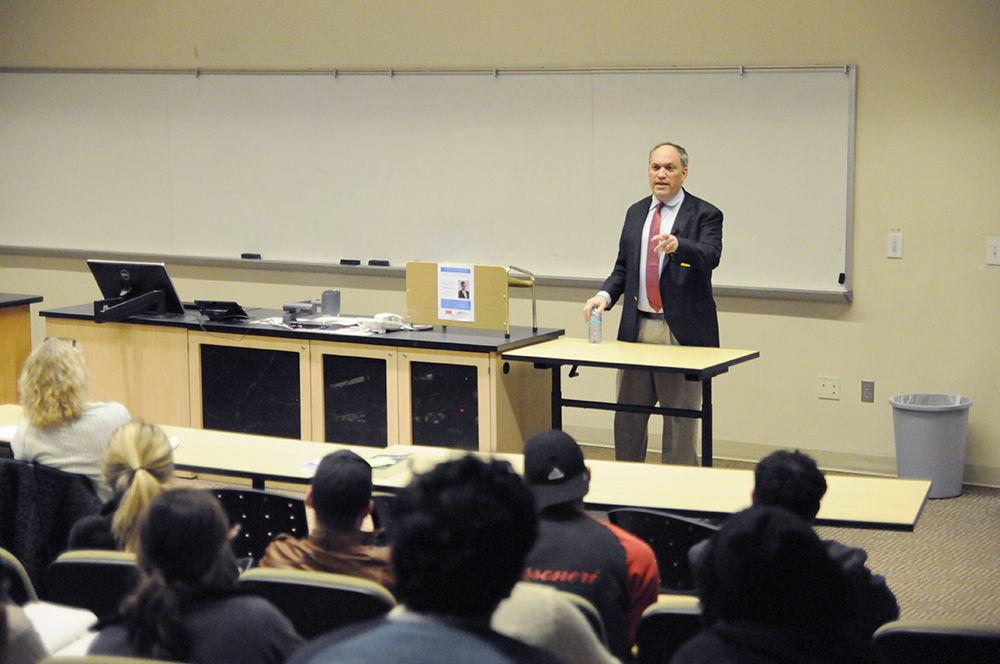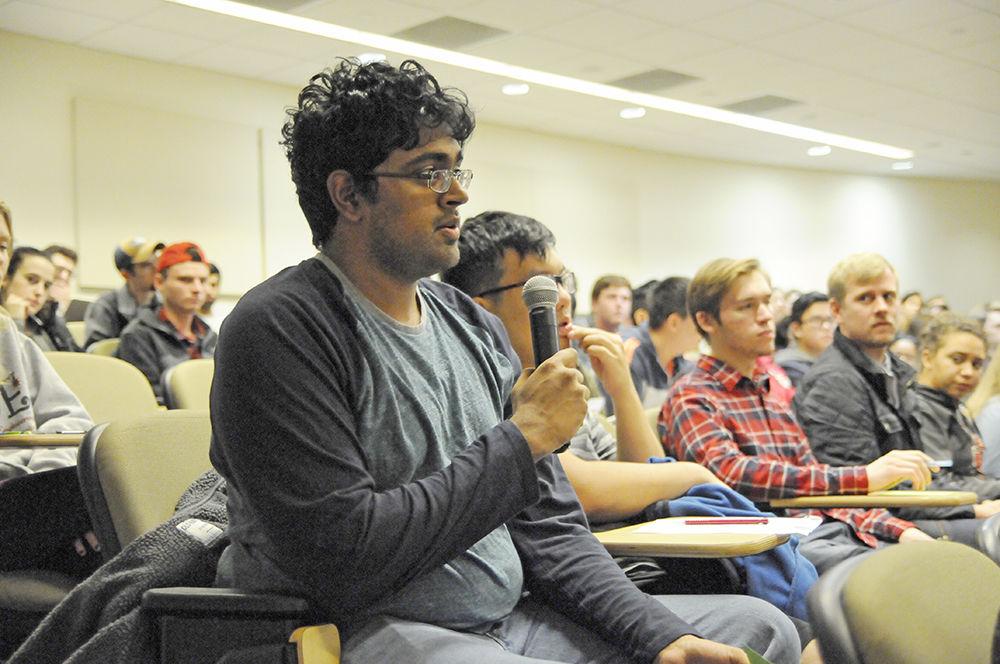Michael Rubin, former Pentagon official and resident scholar at the American Enterprise Institute, spoke in Riddick Hall on Wednesday, describing his optimism about the future of Iraq.
“For the first time, after all the trauma of the last several decades, it really does seem like society — not just the government — but society is starting to turn the corner,” Rubin said.
Rubin cautioned against the idea that all the states in the Middle East are artificially constructed.
“Some people say ‘Hey, Iraq was pieced together; it threw in the Shiites, it threw in the Arab Sunnis, it threw in the Kurds,’” Rubin said. “Just because we’re talking about a modern construct with somewhat artificial borders, doesn’t mean the concept of nationhood in Iraq is arbitrary or a product of Western colonialism.”
Rubin shared context about major religious sects and ethnic groups in Iraq, before sharing his reasons for optimism.
“When we talk about sectarian — that’s religious — so we can talk about the differences between the Sunnis and the Shiites,” Rubin said. “But when we consider the diversity in Iraq you also have ethnic diversity: the Arabs and the Kurds.”
The Sunni and Shiite branches of Islam differ in doctrine regarding religious hierarchy. Under Saddam Hussein, a ruling class of the Sunni Arab minority disenfranchised the Shiite Arab majority and the Kurdish minority. After the end of Saddam Hussein’s rule and during and after the Iraq War, there have been many shifts of power between these groups.
“Whether or not one politically agrees with George W. Bush’s decision to go to war in Iraq, the fact of the matter is Iraq shouldn’t simply be an American political football and if we’re analyzing Iraq honestly, it’s not all about us,” Rubin said.
Rubin shared some reasons for his optimism.
“Baghdad was always behind; and whenever I would go to Baghdad, I would see the blast walls,” Rubin said. “I would see maybe a new restaurant. … This was my first trip to Baghdad where I saw new buildings — eight to nine stories. This is the first time I’m seeing it, and frankly, this is the first time I’m seeing it with Iraqi money, rather than Emirati money, Chinese money or Russian money.”
Rubin also listed the stability of Iraqi currency as well as military self-sufficiency as reasons for optimism.
“The Iraqis have been remarkably resilient,” Rubin said. “The Iraqis have by and large been at the forefront of defeating the Islamic State.”
Rubin cited how police in the town of Ramadi recently retaliated against Islamic State militia members without Irani or U.S. assistance.
“[The Iraqis] have decided that their best option is actually to work much more together,” Rubin said.
Anne Bigelow, associate professor of Islamic studies in the Department of Philosophy and Religious Studies, attended the talk.
“I think he’s a very dynamic speaker,” Bigelow said. “He’s had a lot of experience in the Middle East. He has an excellent on-the-ground perspective on things. I disagree with some of his analyses, but I think it’s important to have forums where we can air all perspectives on these issues in which the U.S. has played such important roles.”
Bigelow advises students to take classes and come to hear speakers to learn more about the region and its history, languages and culture.
Ryan Glennon, a fourth-year studying political science and Arabic, organized the event.
“I was afraid that not that many people would show up,” Glennon said. “This is the first event I’ve ever organized like this. I went to D.C. over the summer and I was with the American Enterprise Institute, and I took a class with [Rubin] and I got on the executive council.”
Glennon said he contacted every political science professor, spoke to everybody he knew and emailed every group that he knew. According to Glennon, 130 people attended the event.
“[Rubin] is very knowledgeable,” Glennon said. “He kept it very neutral politically. You couldn’t tell what side of the aisle he was on.”
Following his talk, Rubin encouraged attendees to ask questions.
“If you could clear up one misconception that Americans have about Iraq or the Middle East in general, what would that be?” asked Hampton Clark, a second-year studying mechanical engineering.
“It’s an incredibly diverse place, and geographically diverse as well,” Rubin said in response.
Clark said that Rubin brought a lot of information that he hadn’t heard before. He feels like when reading western journalism, it’s not really clear what’s going on because it’s just more focused on how America is doing with the Middle East and not what is happening in the nations outside of the United States.
“I did feel like it was too in the weeds,” Clark said. “I got confused with a lot of the terms; sometimes I felt like he didn’t explain very thoroughly. But overall I enjoyed the talk, and I learned some new things that I can talk to my classmates about.”
Rohan Krishnamoorthy, a second-year studying political science, asks speaker Michael Rubin of American Enterprise Institute a question at "Is the Worst Over in Iraq?" with Michael Rubin on Wednesday. The event consisted of a presentation by Rubin about the current situation with relations in Iraq followed by a question and answer session.









